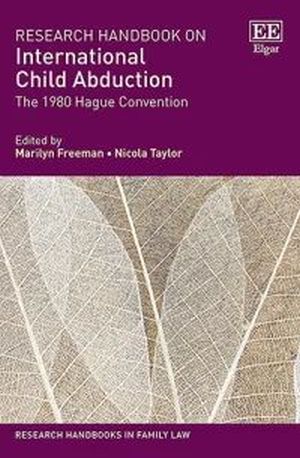
With a focus on the 1980 Hague Convention, this cutting-edge Research Handbook provides a holistic overview of the law on international child abduction from prevention, through voluntary agreements and Convention proceedings, to post-return and aftercare issues.
Analysing the repercussions of abduction from the perspectives of both abducted children and the therapeutic professionals engaged in their cases, chapters assess the contributions of the many professionals and key agencies involved in the field. Identifying the 1980 Hague Convention as the principal global instrument for dealing with child abduction, the Research Handbook traces its role, history, development and impact, alongside the mechanisms required for its effective use. Evaluating current trends, areas of concern in legal practice and various regional initiatives, it considers alternatives to high-conflict court proceedings in international child abduction cases. The Convention’s strengths, successes, weaknesses and gaps are discussed, and the Research Handbook concludes by addressing the need to tackle the challenges in its future operation.
Interdisciplinary and accessible in approach, the contributions from renowned subject specialists will prove useful to students and scholars of human rights and family law, international law and the intersections between law and gender studies, politics and sociology. Its combination of research, policy and practice will be of use to legal practitioners working in family law alongside NGOs and central authorities working in the field.